Guest Perspective: My Experience at the Border
April 26, 2023
The following is a guest column by senior Maggie Crimmins, who participated in the El Otro Lado border immersion this April.
This past week, I, along with eight other La Salle students, had the luxury of spending a week in El Paso, Texas, a city that borders the town of Juárez, Mexico. I am unaccustomed to a life not filled with excess: excess food, excess clothing, excess income. This week reminded me of that.
Arriving the first night, we were greeted by a parish filled with migrants. Immediately, I was scared. Not scared of sleeping on a cot, not scared of the shared restroom or the cold showers, but scared of the people.
I was raised in a country that fears immigrants and migrants. I always thought I didn’t believe that, but it became apparent quite quickly that I had internalized the xenophobia present in America.
We awoke early in the morning. The migrants greeted us with joy, welcoming us with “Buenos días!” We quickly learned that the migrants were refugees from Venezuela. They had traveled here to El Paso seeking safety and security. These humans were running away from the violence that I had assumed was intrinsic to their culture due to the anti-immigrant sentiments instilled in American children. I am ashamed that those values were instilled in me, as well.
Later that day, we attended Mass with unaccompanied minors who are migrants. We prayed with the kids, learned with them, sang with them, ate with them, and played games with them.
On Monday, our group crossed the border into Juárez. We heard the story of a middle-aged man. The man told us that he wanted to come to the States in order to work hard and provide his two young daughters with a good education.
He explained that he and his peers were lining the streets in order to guard the memorial they had set up outside a migrant shelter where 40 migrants had burned alive earlier this month. The Mexican government kept trying to take down their memorial, he told us in Spanish. He showered us with accolades for listening. He was so used to being silenced that it was a blessing for him to be heard.
A large, cardboard sign stood tall in front of the memorial with, “40 sacrifices for the dream of millions of people” scrawled on it in big blue writing.
On Tuesday, we interviewed Border Patrol officers. I empathized with them as they told us tales of the cartel and smugglers. In my naivety, I did not realize until later that the picture they painted was one carefully curated by PR personnel.
On Wednesday, we watched a 21 year old boy in court plead guilty to a felony for illegally entering the States for the second time. His only crime was setting his feet on land that a politician determined did not belong to him. The young man went from human to illegal.
We then heard from Las Americas, an immigrant advocacy non-profit. I learned that in immigration court, immigrants are not provided with lawyers. Human beings seeking asylum from violence are brought into a court in an unfamiliar country where they often do not speak the language and are left to fend for themselves. In El Paso, about 5% of humans seeking asylum are granted asylum. The majority of the rest are deported.
On Wednesday afternoon, we passed food and toys to a family and their dog through the wall. I will never forget the visceral feelings that came with seeing a baby through bars. On Thursday, we hiked Mt. Cristo Rey at 7 a.m.
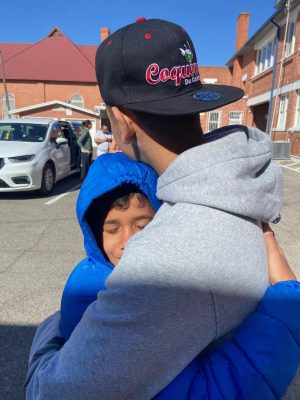
We later heard the story of a man who voluntarily rode on top of a train through the entire country of Mexico to get to El Paso in order to understand what hundreds of migrants experience every single day. He told stories of murder, of robbery, and of hardship.
The man had to stop after five days, approximately a third of the journey many make. He was extremely ill from malnourishment, dehydration, and drinking his own urine. The man told us that he could not sleep for months because all he could hear were train wheels, and every time he closed his eyes, he could only see the faces of the humans he met along the way.
On our final night, we all cried for those people — for their bravery and their ability to face struggles that many of us cannot even fathom.
While the planned events of the week impacted me greatly, nothing compared to the impact that spending time playing with the Venezuelan children at the parish had on me. We had a giant water balloon fight, played games with chalk, and ran fútbol matches.
In those moments, we were not divided. There was no “us” and “them,” but rather a group of kids playing together in El Paso, Texas. We laughed, we screamed, we scootered, and we hugged. We were human together.
On our final morning in El Paso, a couple of the Venezuelan girls came into our room shortly after we woke up. They sat with us while we cleaned. We chatted in Spanish.
If El Otro Lado taught me one thing, it is that we are all human beings before anything else. The immigrants and migrants that we debate about in kitchens and in court rooms are not objects, they are Estefani, Angeles, Diesel, Shirley, Antonio, and millions more.
We are not the United States. When all humans become humans, then we will know what “united” means. Not in Spanish, not in English, but in suffering, and in joy, and in humanity. Language divides us, walls divide us, borders divide us, but humanity unites us. We get to choose what we let prevail.
So, the next time you are discussing immigration, I challenge you to dissolve the use of “us” and “them” to the best of your ability. I challenge you to allow humanity to override a line on a map or a language barrier. Embrace the unity that our country advertises so that we can embody the most important word in the name of our country: “United.”

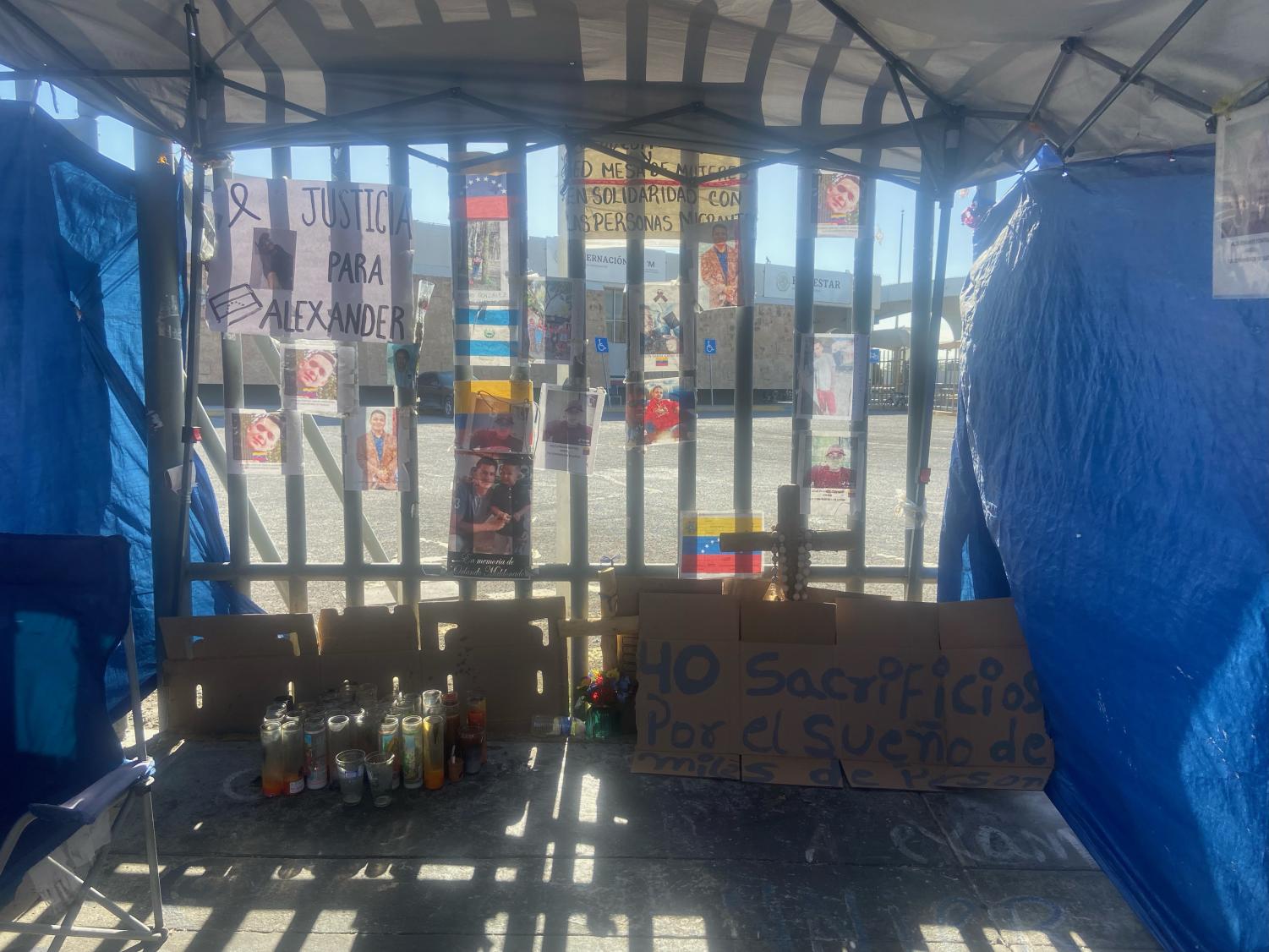
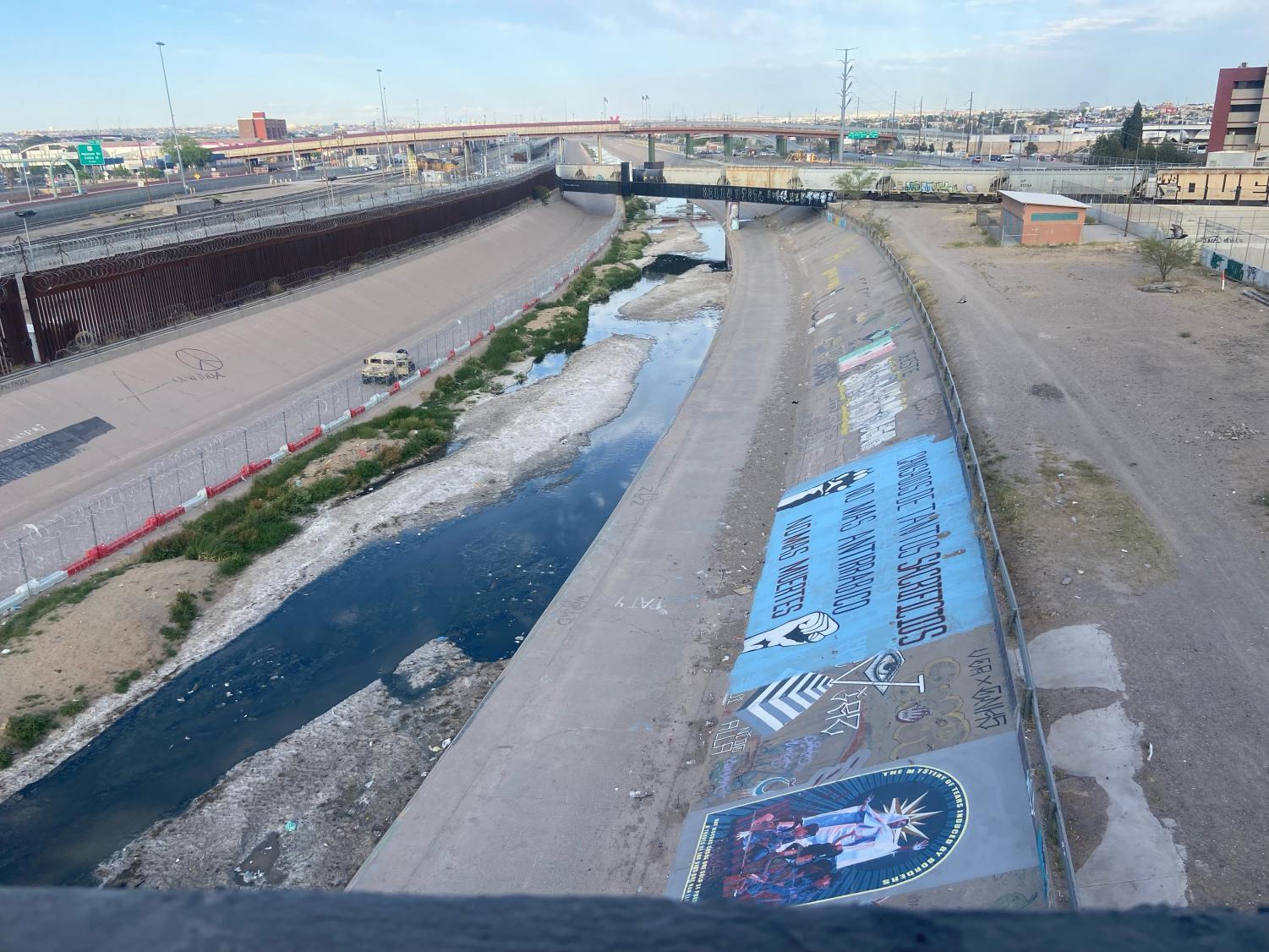
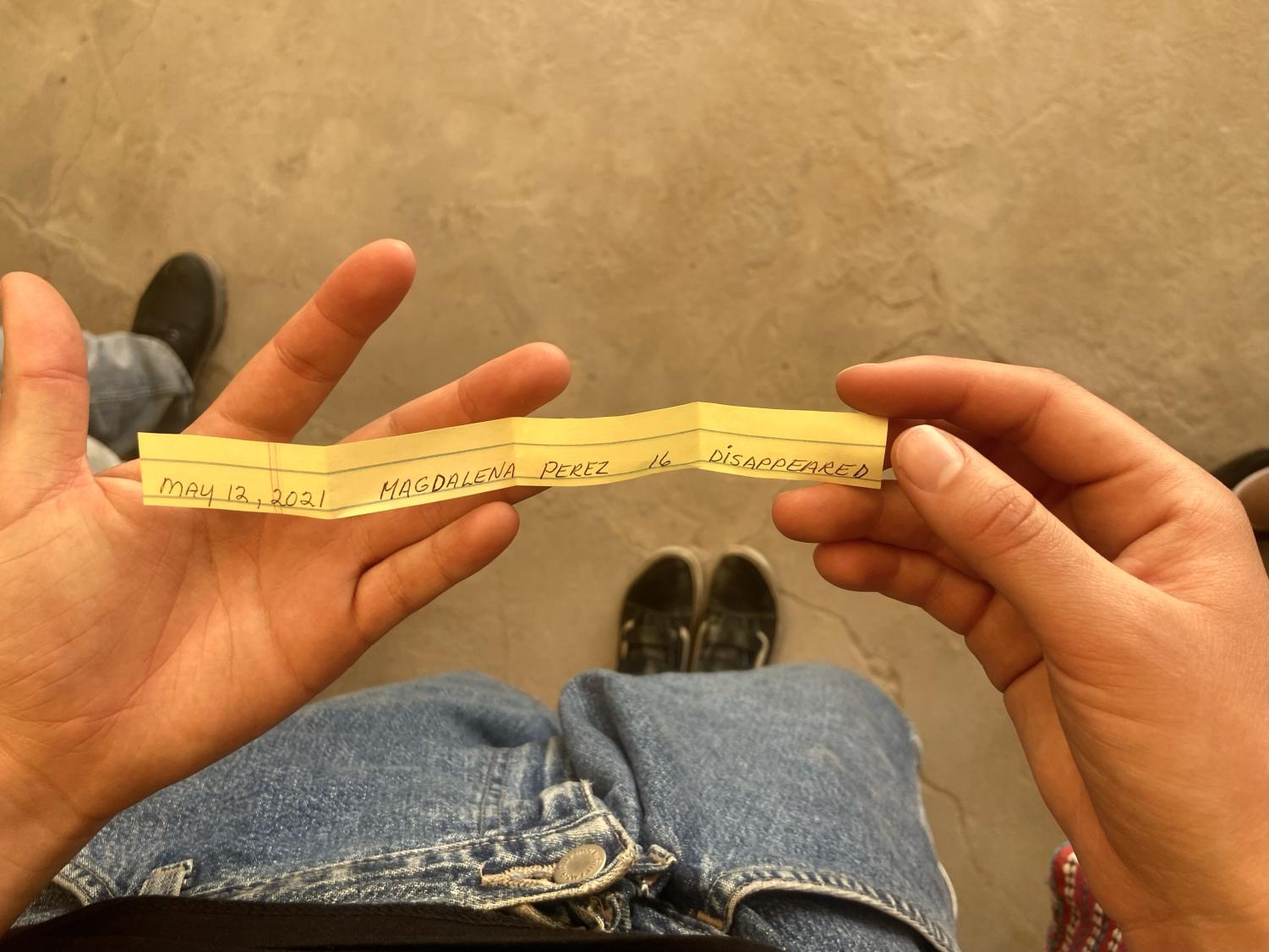
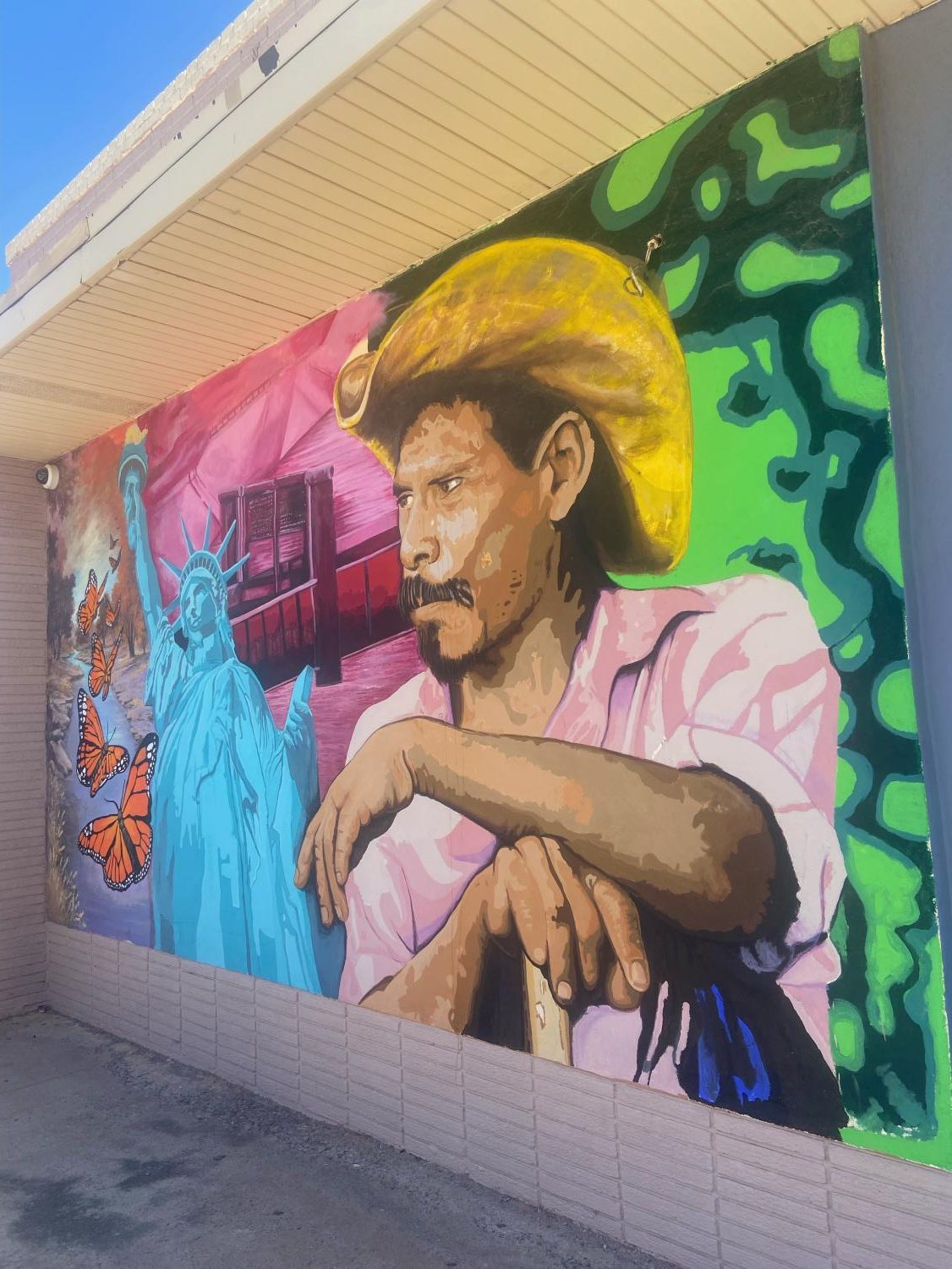
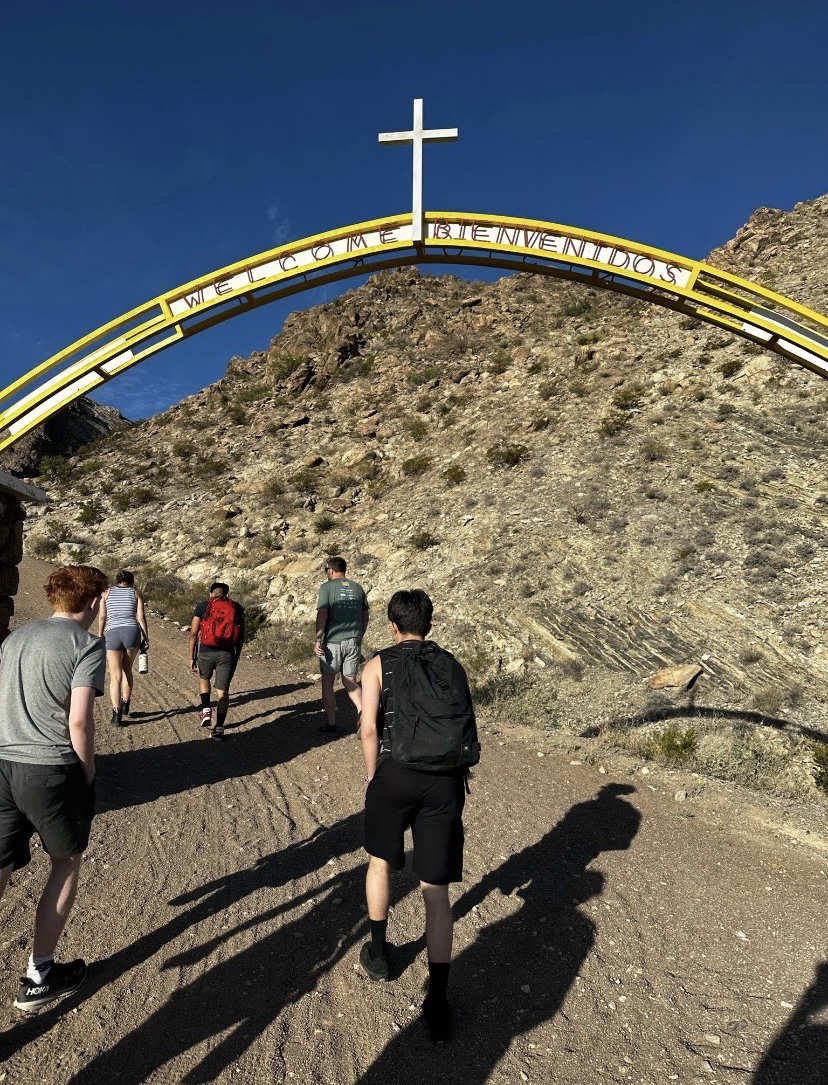
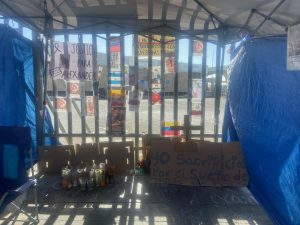
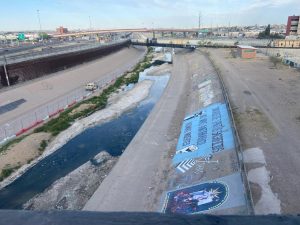
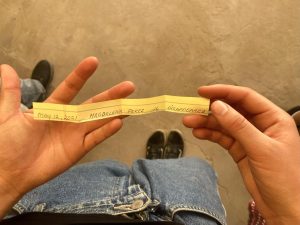
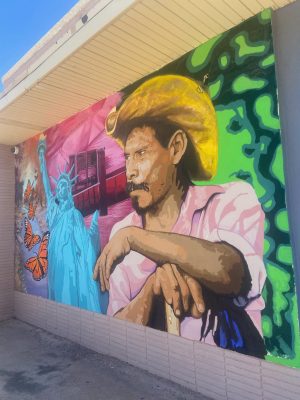
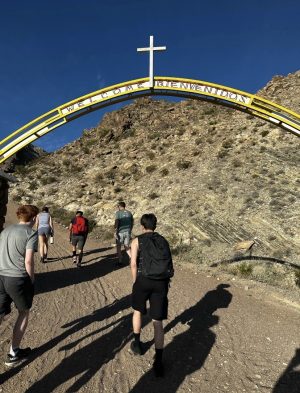



Mario Garza • May 4, 2023 at 8:26 am
What a great experience….thank you for sharing this story.